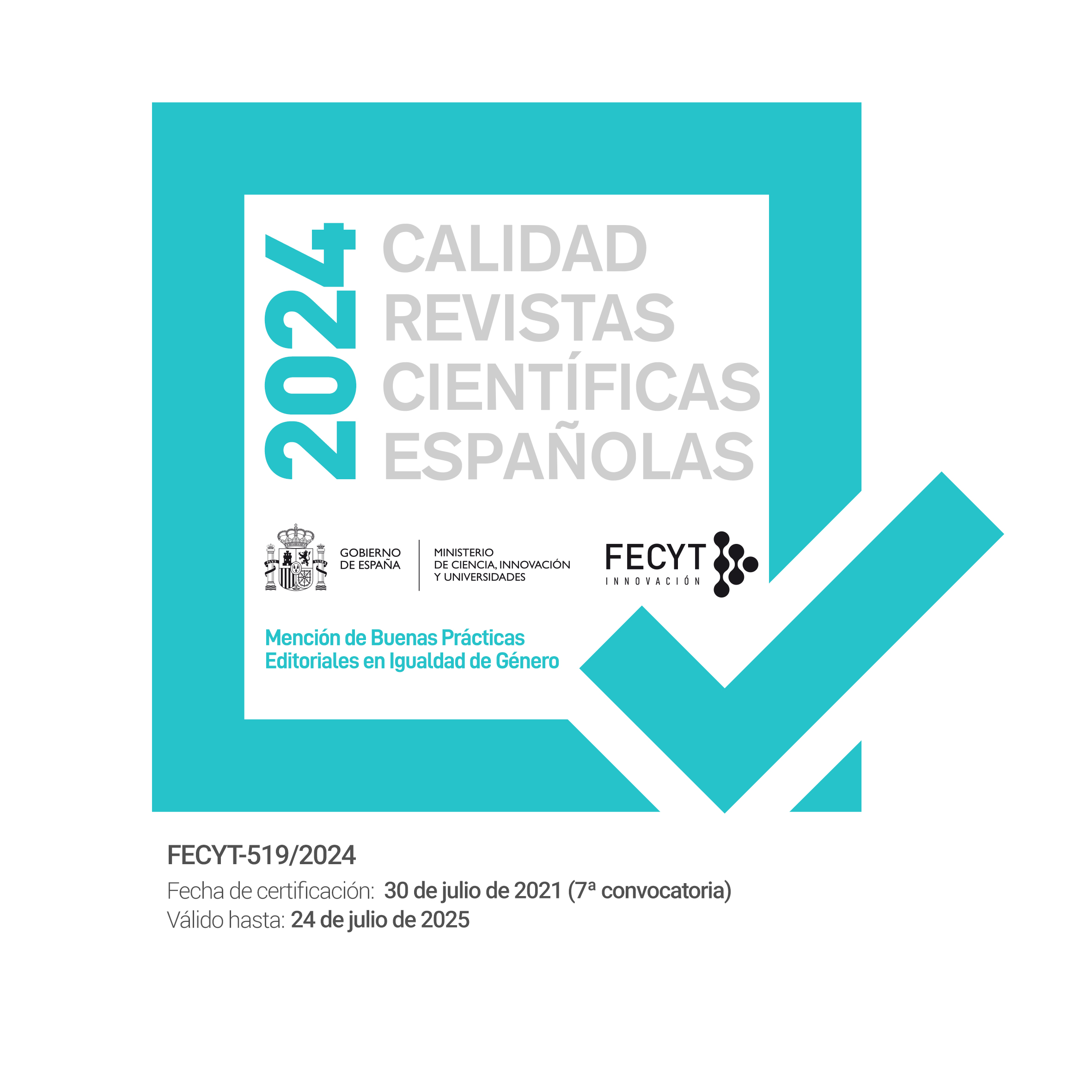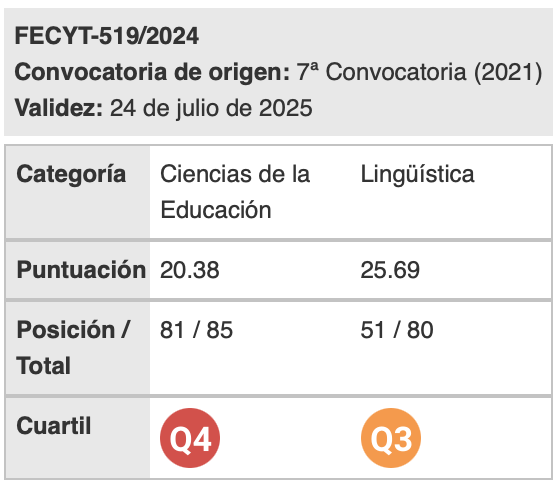Attitudes to Language and Culture in the EFL Classroom: British versus American English?
Palabras clave:
ELT, attitudes, language and culture, varieties of EnglishResumen
The main purpose of this article is to report on the results of an empirical study carried out among the students of English Philology at Las Palmas de Gran Canaria University in order to elicit data about their attitudes toward the British and the American varieties of English. In view of the outcome, we try to suggest ways in which we can cope with students’ tendency to put too high a value on British English and to judge the other varieties as inferior. Specifically, we argue that when teaching English in the 21st century, it makes little sense to restrict the limits of the language and the culture to the British sphere. In fact, the evolution of English into an international language requires that all of its speakers, learners, and teachers recognise and reaffirm the diversity of cultures English represents throughout the world today.
Descargas
Citas
Agheyisi, R. and Fishman, J. (1970). “Language Attitude Studies”. Anthropological
Linguistics 12, 5: 137-157.
Allport, G. (1967). “Attitudes” in Martin Fishbein (ed.), Readings in Attitude Theory
and Measurements. New York: John Wiley & Sons, pp. 1-13.
Berns, M. (1992). «Sociolinguistics and the Teaching of English in Europe beyond
the 90s». World Englishes 11,1: 3-14.
Brown, D. (1973). “Affective Variables in Second Language Acquisition”. Language
Learning 23, 2: 231-244.
Byram, M., A. Nichols and D. Stevens (eds.). (2001). Developing Intercultural Competence in Practice. Clevedon /Buffalo / Toronto /Sydney: Multilingual Matters Ltd.
Castro Calvín, J. (1991). «A Reappraisal of Motivation: The Cornerstone of L2 Language Learning». Revista Alicantina de Estudios Ingleses 4: 11-23.
Chacón Beltrán, R. (2004). An Introduction to Sociolinguistics. Madrid: Universidad Nacional de Educación a Distancia.
Chew, Phyllis G. L. (1997). «Fears and Hopes: Globalization and the Teaching of the International Auxiliary Language». Revista de Lenguas para Fines Específicos 4: 79-93.
Cooper, R. and J. Fishman. (1974). “The Study of Language Attitudes”. International Journal of the Sociology of Language 3: 5-19.
— (1977). “A Study of Language Attitudes”. The Bilingual Review 4: 7-34.
Crystal, D. (1990). The English Language. Penguin Books.
Crystal, D. (2003). The Cambridge Encyclopedia of the English Language. 2nd ed. New York: Cambridge University Press.
Fasold, R. 1994 (1990). The Sociolinguistics of Language. Oxford, U.K. & Cambridge, U.S.A.: Blackwell.
Fasold, R. 1995 (1984). The Sociolinguistics of Society. Oxford, U.K. & Cambridge, U.S.A.: Blackwell.
Flaitz, J. (1988). The Ideology of English: French Perceptions of English as a World Language. Berlin-New York-Amsterdam: Mouton de Gruyter.
Fox, K. (2004). Watching the English. The Hidden Rules of English Behaviour. London: Hodder & Stoughton Ltd.
Gardner, R. C. and W. E. Lambert. (1972). Attitudes and Motivation in Second Language Learning. Newbury House.
Gardner, R. C. and P. C. Smythe. (1977). “Intensive Second Language Study: Effects on Attitudes, Motivation and French Achievement”. Language Learning 27, 2: 243-261.
— (1979). “Social Psychological Aspects of Second Language Acquisition” in Howard Giles and Robert St. Clair, (eds). Language and Social Psychology, pp. 193-194.
— (1982). “Language Attitudes and Language Learning” in Bouchard Ryan & Giles (eds). Attitudes towards Language Variation, pp. 132-147.
Gardner, R. C. (1985). Social Psychology and Second Language Learning. Edward Arnold.
González Cruz, M. I. (1995). La convivencia anglocanaria: estudio sociocultural y lin- güístico, 1880-1914. Ediciones del Cabildo Insular de Gran Canaria.
González Cruz, M. I. & M. P. González de la Rosa. (1995). «Optional English in Context: A Survey of ESL/ESP students at the ULPGC». Revista de Lenguas para Fines Específicos 2: 23-39.
González Cruz, M. I. & M. P. González de la Rosa. (1998). «Dimensions of the Intercultural Within Travel Literature: British Images of Spain», in Santiago Henríquez (ed.), Travel Essentials. Collected Essays on Travel Writing. Las Palmas de G.C.: Chandlon Inn Press, pp. 43-61.
González Cruz, M. I. & S. Henríquez Jiménez. (1997). «Sobre actitudes y motivación en el aprendizaje de inglés en la universidad.» Actas del I Congreso Internacional de Adquisición y Aprendizaje de Lenguas Segundas y sus Literaturas, pp. 129-134.
González Cruz, M. I. & C. Luján García. (1997). «On Attitudes, the Driving Force in ESL and EWL Studies». Revista de Lenguas para Fines Específicos 4: 185- 208.
Jenkins, J. (2003). World Englishes. A Resource Book for Students. London and New York: Routledge.
Kachru, B. B. (1985). “Standards, Codification, and Sociolinguistic Realism: the English Language in the Outer Circle”, in Quirk and Widdowson, (eds.), English in the World: Teaching and Learning the Language and Literatures. Cambridge University Press, pp. 11-30.
— 1992 (1982). “Teaching World Englishes”, in Braj B. Kachru (ed.). The Other Tongue. English across Cultures. Urbana and Chicago: University of Illinois Press, pp. 355-365.
Kachru, Y. 1992 (1982). «Culture, Style, and Discourse: Expanding Noetics of English», in B. Kachru (ed.), The Other Tongue. English across Cultures. Urbana and Chicago: University of Illinois Press, pp. 340-352.
Kramsch, C. (1993). Context and Culture in Language Teaching. Oxford University Press.
Luján García, C. I. (2003). La lengua inglesa en Canarias: usos y actitudes. Las Palmas de Gran Canaria: Departamento de Ediciones del Cabildo de Gran Canaria.
McGroarty, M. (1996). «Language Attitudes, Motivation and Standards» in S. Lee McKay (ed.), Sociolinguistics and Language Teaching, pp. 3-46.
Modiano, M. (1996). «The Americanization of Euro-English». World Englishes 15, 2: 207-215.
Morales Lezcano, V. (1970). Relaciones mercantiles entre Inglaterra y los Archipiélagos del Atlántico Ibérico. Su estructura y su historia. Instituto de Estudios Canarios.
Nakayama, Y. (1982). «International English for Japanese People: Suggesting ‘Multinationalization’». TESL Reporter 15, 4: 63-72.
Nelson, C. L. 1992 (1982). «My Language, Your Culture: Whose Communicative Competence?», in B. Kachru (ed.), The Other Tongue. English across Cultures. Urbana and Chicago: University of Illinois Press, pp. 327-339.
Palacios Martínez, I. M. (1994). La enseñanza del Inglés en España a debate. Perspectivas de profesores y alumnos. Santiago de Compostela: Universidade de Santiago de Compostela.
Quintana Navarro, F. (1992). Informes consulares británicos sobre Canarias (1856- 1914). Las Palmas de Gran Canaria: Seminario de Estudios Históricos Canarios del Centro Asociado de la UNED.
Sandefur, J. R. «Modern Australian Aboriginal Languages: the Present State of Knowledge». English World-Wide 4: 43-68.
Schmid, R. (1992). “Current Trends in the Study of Motivation for Foreign Language Learning”. Revista Canaria de Estudios Ingleses 25: 95-108.
Smith, L. E. (1987). Discourse Across Cultures: Strategies in World Englishes. New York: Prentice-Hall.
Spolsky, B. (1969). «Attitudinal Aspects of Second Language Learning». Language Learning 19, 3-4: 271-285.
Thomas, L. & S. Wareing. (1999). Language, Society and Power. London & New York: Routledge.
Titone, R. (1982). “Second Language Learning: An Integrated Psycholinguistic Model”, in B. Bain (ed.), The Sociogenesis of Language and Human Conduct. New York: Plenum, pp. 273-285.
Todd, L. (1984). Modern Englishes: Pidgins & Creoles. Oxford: Basil Blackwell. Wierzbicka, A. (2006). English. Meaning and Culture. Oxford University Press.
Descargas
Publicado
Cómo citar
Número
Sección
Licencia
Aquellos autores/as que tengan publicaciones con esta revista, aceptan los términos siguientes:
- Los autores/as conservarán sus derechos de autor y garantizarán a la revista el derecho de primera publicación de su obra, el cuál estará simultáneamente sujeto a la Licencia de reconocimiento de Creative Commons que permite a terceros compartir la obra siempre que se indique su autor y su primera publicación esta revista.
- Los autores/as podrán adoptar otros acuerdos de licencia no exclusiva de distribución de la versión de la obra publicada (p. ej.: depositarla en un archivo telemático institucional o publicarla en un volumen monográfico) siempre que se indique la publicación inicial en esta revista.
- Se permite y recomienda a los autores/as difundir su obra a través de Internet (p. ej.: en archivos telemáticos institucionales o en su página web) antes y durante el proceso de envío, lo cual puede producir intercambios interesantes y aumentar las citas de la obra publicada. (Véase El efecto del acceso abierto).

Revista de Lenguas para fines específicos is licensed under a Creative Commons Reconocimiento-NoComercial-SinObraDerivada 4.0 Internacional License.






















